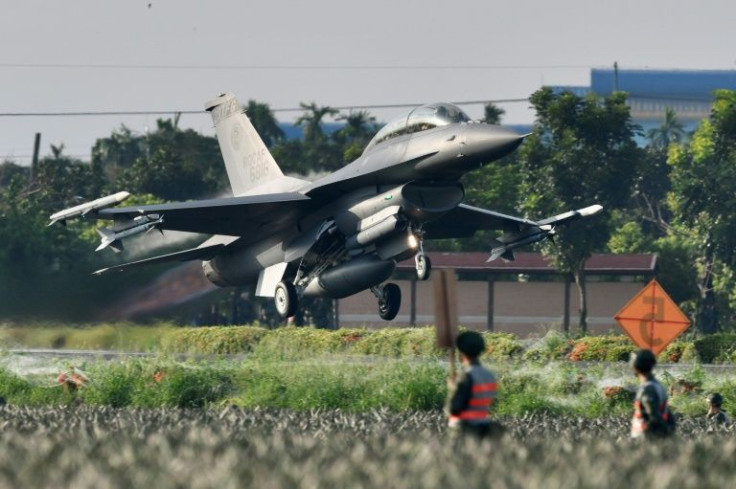China Mocks Taiwan's 'Assymetric Warfare' Plans For Han Kuang Drill, Says It's 'So Inferior'
KEY POINTS
- The war games will focus on the readiness of civilians to fight the enemy
- The effectiveness of forces in handling cognitive warfare will be tested
- China mocked Taiwan, calling its war games inferior in level and scale
Taiwan is learning valuable lessons from Ukraine's resistance to the Russian invasion, and these will be put to test at the East Asian country's annual Han Kuang war game, which starts next month.
According to Taiwan's Ministry Of Defense, this year’s war games will focus on four areas: maintaining combat capability, naval warfare, terrestrial defense and civilian support for armed forces, said Radio Taiwan International. It will incorporate lessons of asymmetric warfare with regard to handling the stronger People's Liberation Army (PLA).
The war games will test all-out defense readiness, like in Ukraine, wherein reservists and civilian forces ventured out to stop the enemy, said reports quoting Major General Lin Wen-huang, director of joint operations under the military’s planning office.
"The 38th edition of the Han Kuang drill will be divided into two stages, with the first being held on May 16-20 followed by a live-fire drill to be held on July 25-29," Lin told a news conference in Taipei on Wednesday.
Taiwan has also decided to ditch the usual computerized simulation method and will instead opt for "a form of map exercise which allows generals to meet face-to-face to discuss strategy." The military will then stage the live-fire drills in July based on the result of the simulation analyses, he said.
According to Lin, the military will also test the effectiveness of local forces in dealing with cognitive warfare launched by Beijing and the mobilization of reserve forces in working with civilian forces. Tactics like eliminating invading forces at sea and along the coastline; preserving combat forces for a counter-attack; and air, sea and homeland resistance will also be tested.
The modifications for the war games come amid reports that Taiwan's military strategists are closely watching the war situation, including Russia’s use of precision missiles and Ukraine’s tactical resistance. According to Taiwan, Ukraine, like them, is faced with military many times superior to its own, thereby bringing the spotlight on "asymmetric warfare."
"Asymmetric warfare" is an idea championed by Taiwanese President Tsai Ing-wen, focusing on high-tech, mobile, and vehicle-mounted missiles designed to make any Chinese attack as difficult as possible.
Expectedly, Taiwan will put to use portable Javelin and Stinger missiles, which were instrumental in destroying Russian tanks during the Ukraine invasion, during the war games. Taiwan too has been developing weapons like the lightweight and indigenously developed Kestrel shoulder-launched anti-armor rocket designed for close warfare.
However, Taiwan's preparations were met with ridicule by Chinese officials. Ma Xiaoguang, a spokesman for the Taiwan Affairs Office in Beijing, criticized the island’s independence-leaning Democratic Progressive Party for trying to use an "outside force" to split the island from the mainland. He also reportedly mocked Taiwan for the war game "whose scale and level is so inferior that even a non-professional like him would not care about it at all."

© Copyright IBTimes 2024. All rights reserved.




















